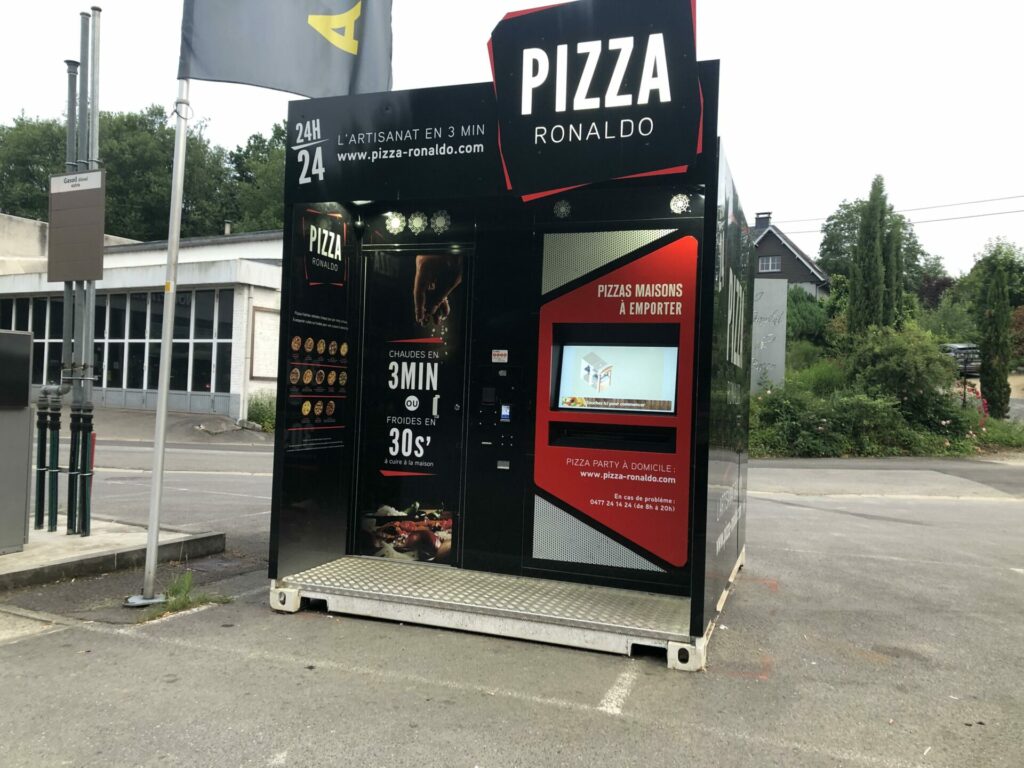Over the last few years, pizza vending machines have grown like mushrooms in Wallonia.
Often on the outskirts of large cities, or in rural areas, these vending machines are part of a network being installed by several companies in the region which, while they may be convenient, raise questions about the effects on the environment and consumption.
These vending machines could originally be found on garage forecourts and in supermarket car parks on the periphery of cities, but they are now more often installed outside small convenience stores in villages and small countryside towns.
In these locations, they provide consumers with a fallback food solution when everything else is closed or too far away. Compared to 'classic' vending machines – for drinks and snacks, for example – these pizza machines are a bit more "sophisticated."
The products that come out are warm and have been heated to the optimum temperature in a very short space of time, a few minutes in most cases.
Many see these machines as 'totems' of the consumer society that has developed at a rapid rate in the second half of the twentieth century in the Western world.
"These vending machines embody the great capitalist dream of a completely fluid consumption," says Vincent Chabault, a sociologist specialising in commerce. "That is to say, without constraint since this type of machine knows neither limitation in schedules, nor any Covid-19 restrictions."
Related News
- Success for local restaurants 'Brussels in the Dark' initiative
- Ban on public alcohol consumption in central Brussels extended
- Carbon dioxide shortage threatens EU beer and food industries
"These are totems of the consumer society, there is no doubt about that, but they are perhaps even more a kind of absolute service since these vending machines are there to respond, quickly and intimately, to a desire, to an impulse of the consumer," adds Guénaël Devillet, director of the Department of Study in Fundamental and Applied Economic Geography (SEGEFA) of the University of Liège.
That these vending machines have now spread to rural areas is due to the fact that they face stiff competition in larger cities. "For example, fast delivery services such as Uber Eats or TakeAway put pressure on the companies supplying these machines," says Guénaël Devillet.
"On the other hand, in the territories on the outskirts where they are located, there is a full potential of customers. Hence the choice of these locations, I imagine.”
Vincent Chabault views the rise of pizza vending machines in rural areas as an indication of an economic redeployment in areas where businesses have become scarce in recent years.
"I also find that these pizza machines cultivate a kind of paradox around the notion of local," says Guénaël Devillet. "They are local in relation to their geographical location but are not in relation to the extremely standardised and often industrial products they offer."
It remains to be seen whether the movement to establish these vending machines continues. If it does, the most remote environment may well provide you with the chance to eat pizza.

